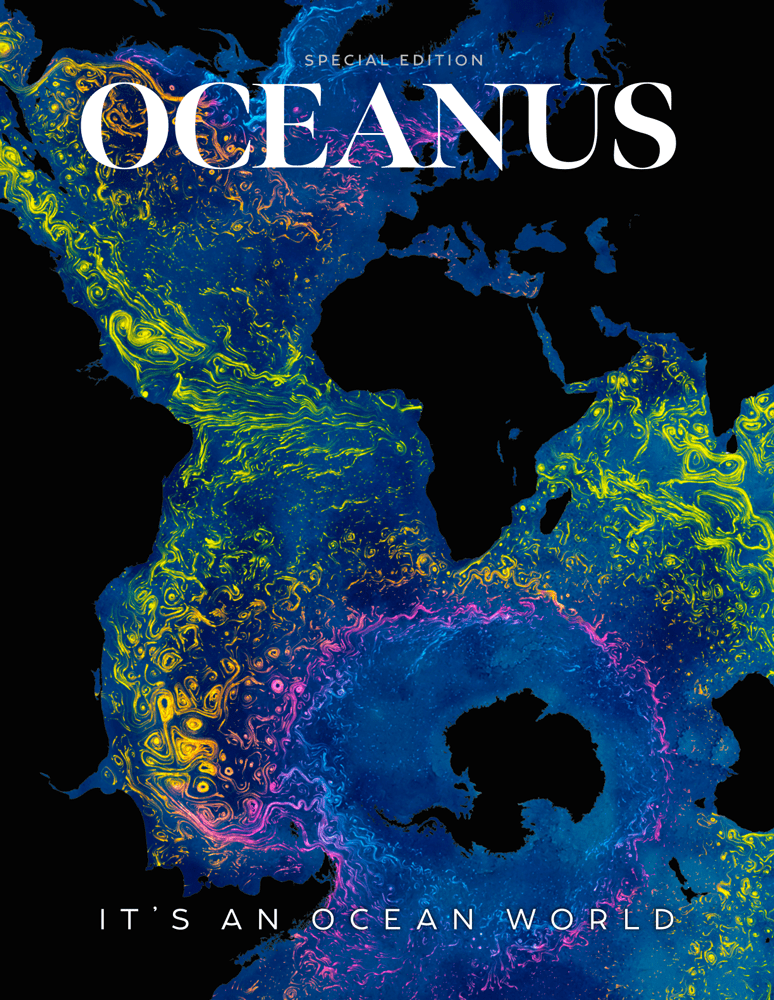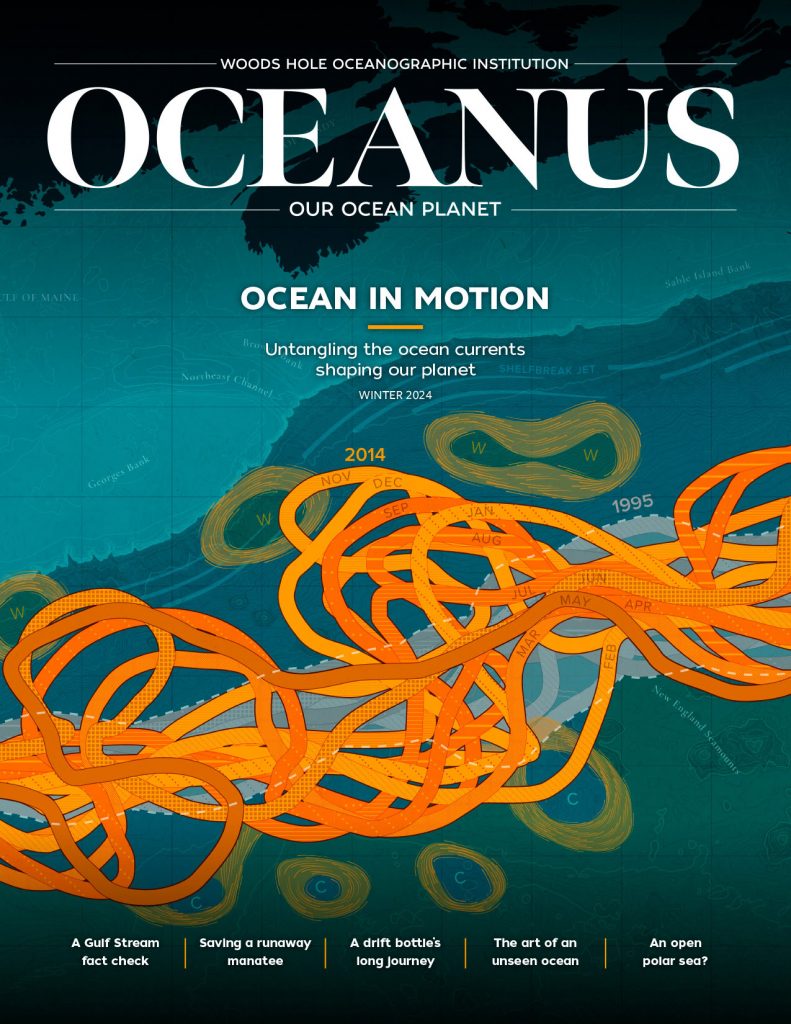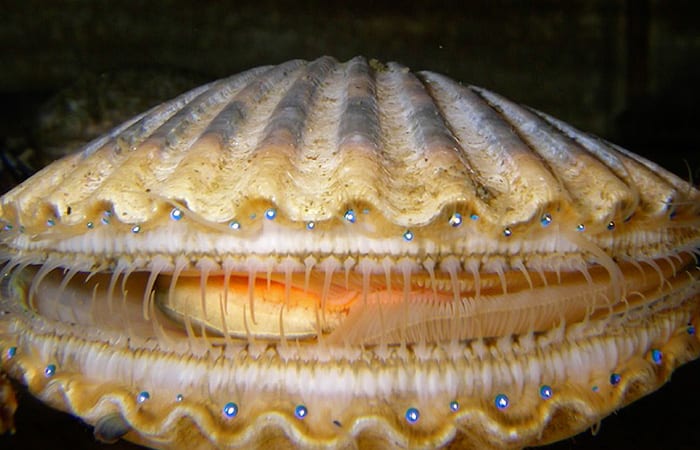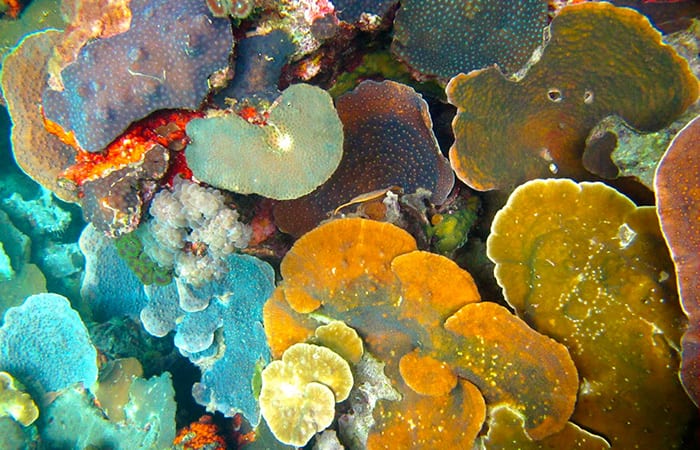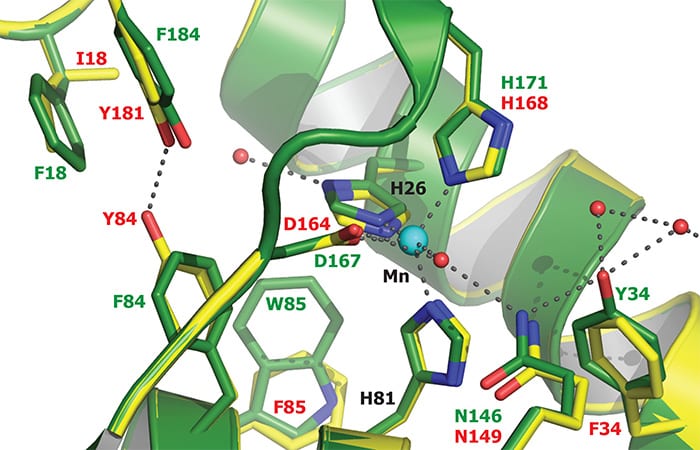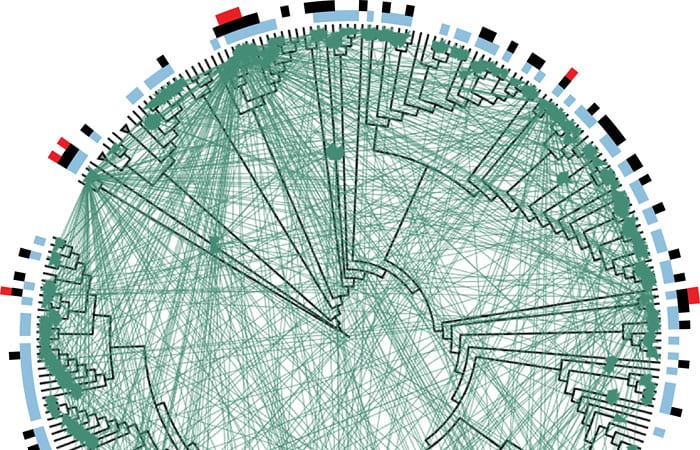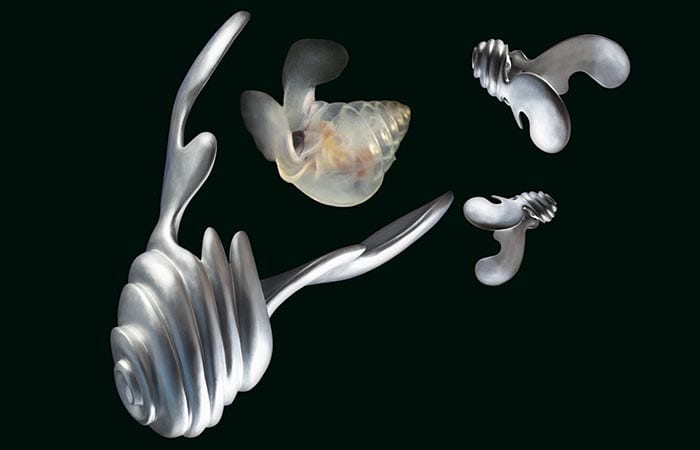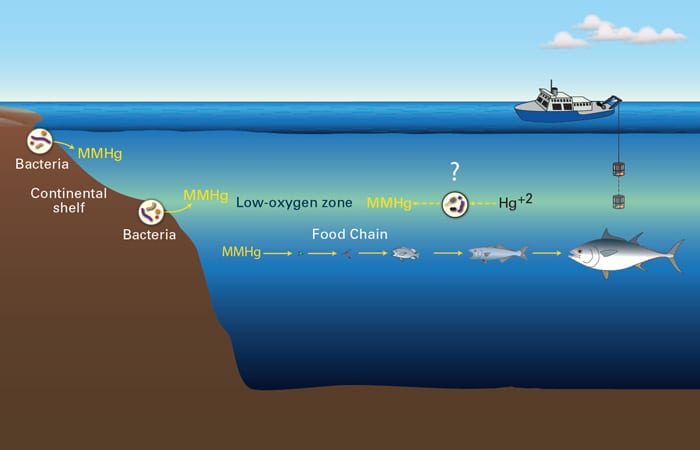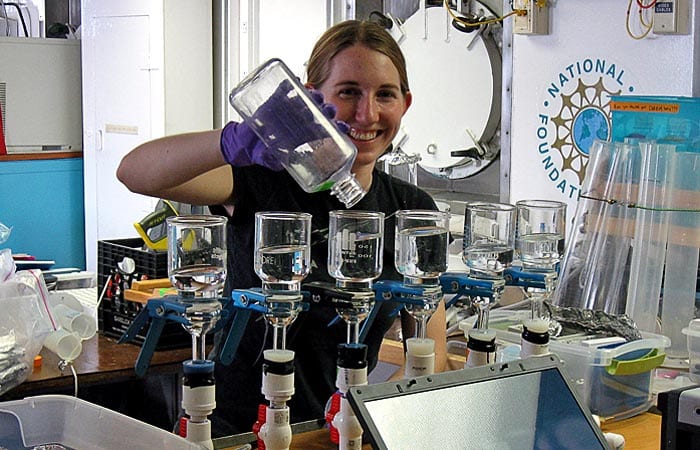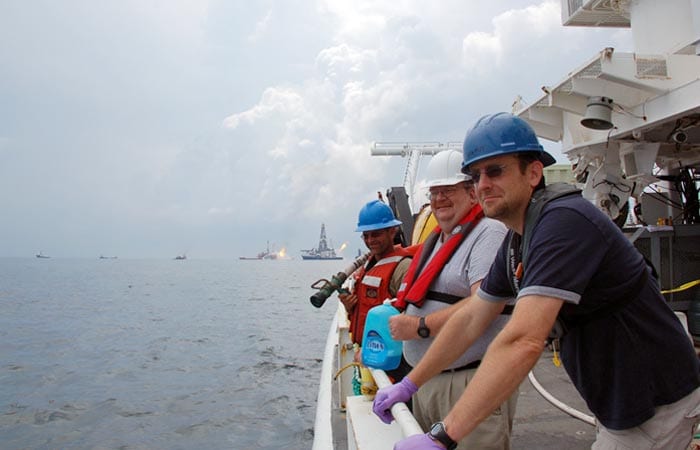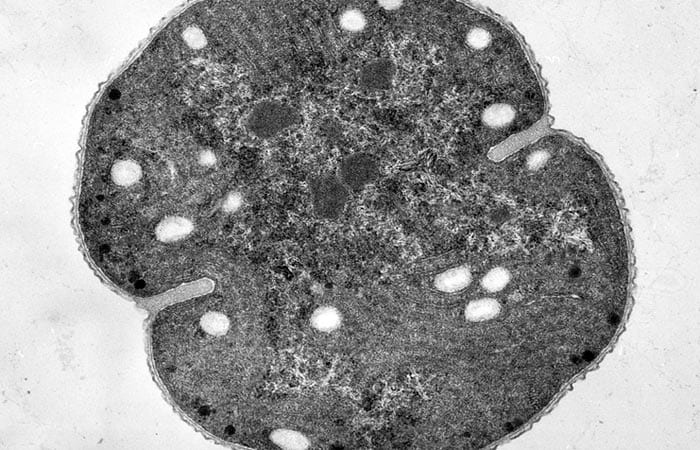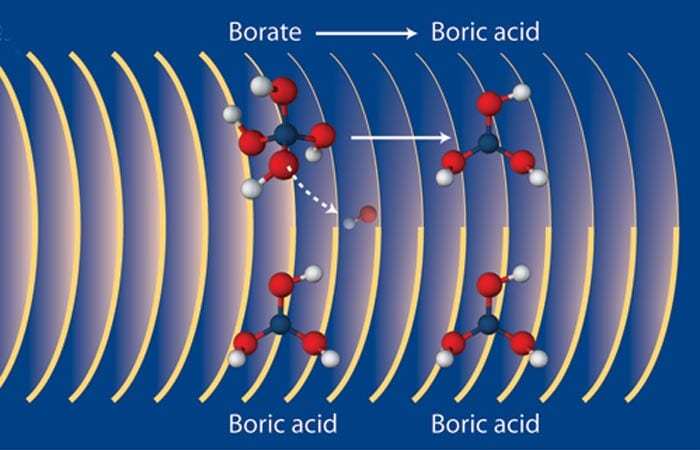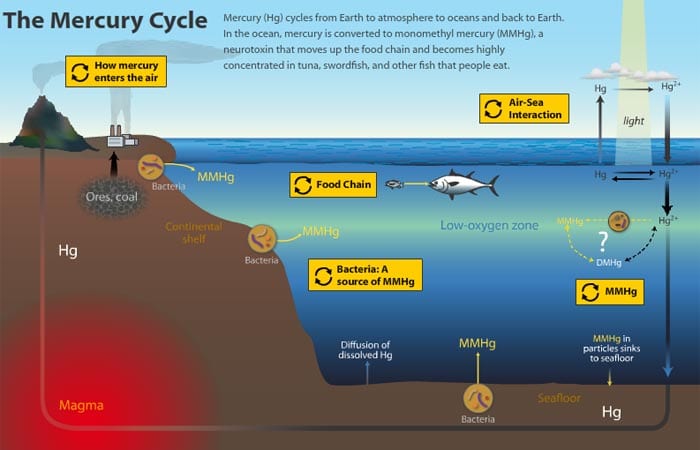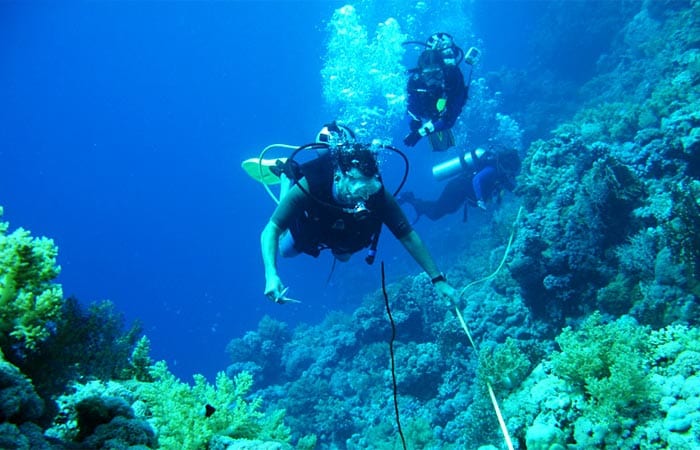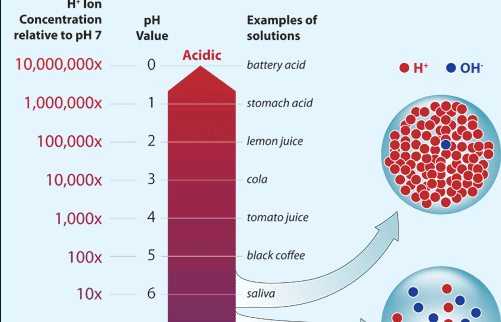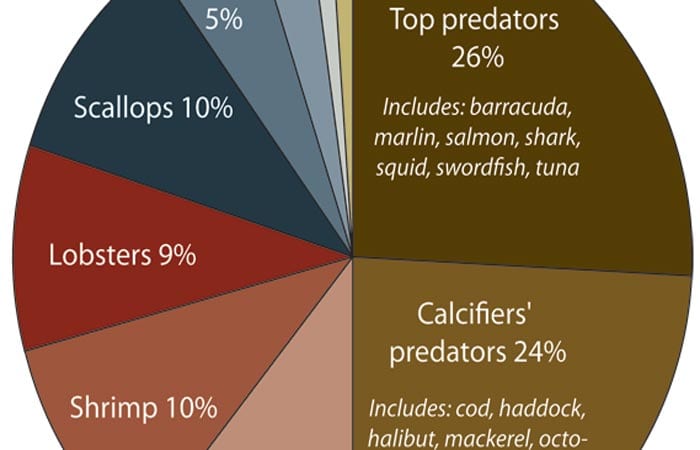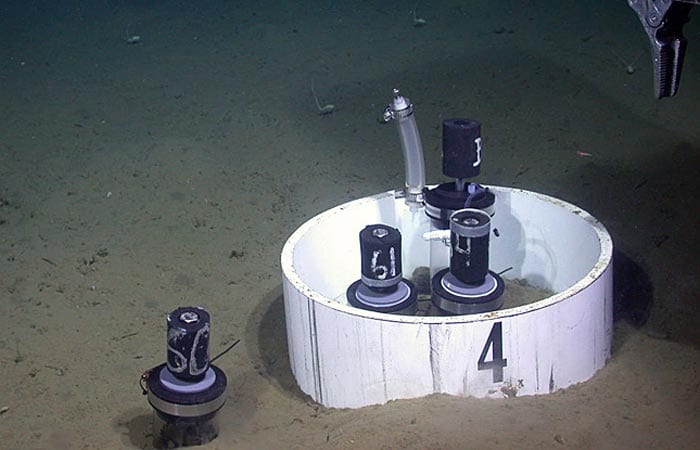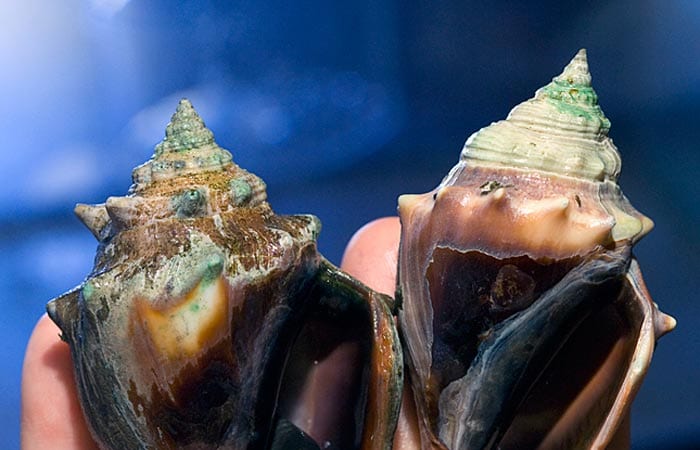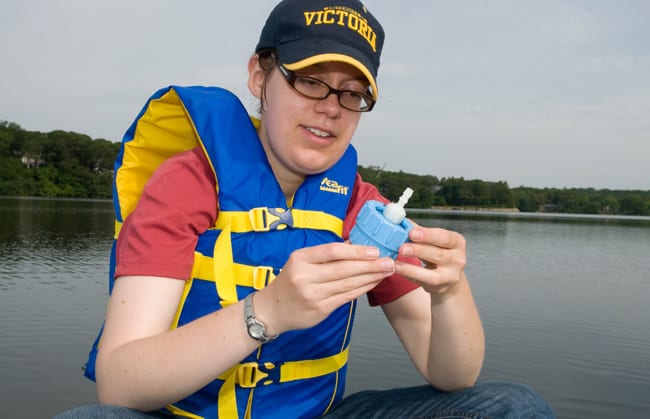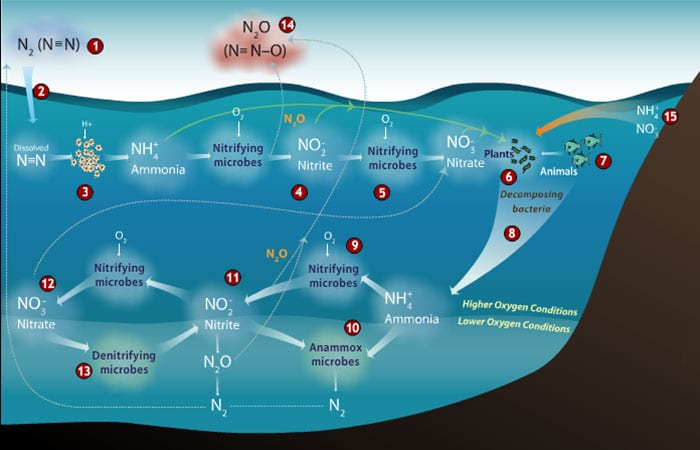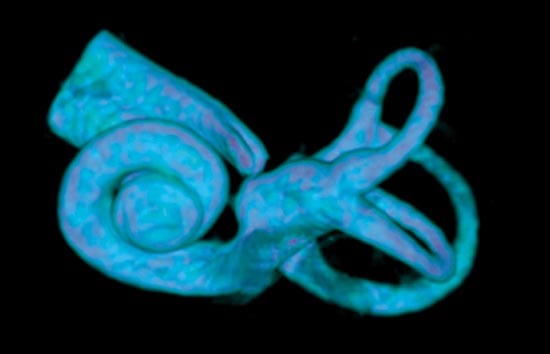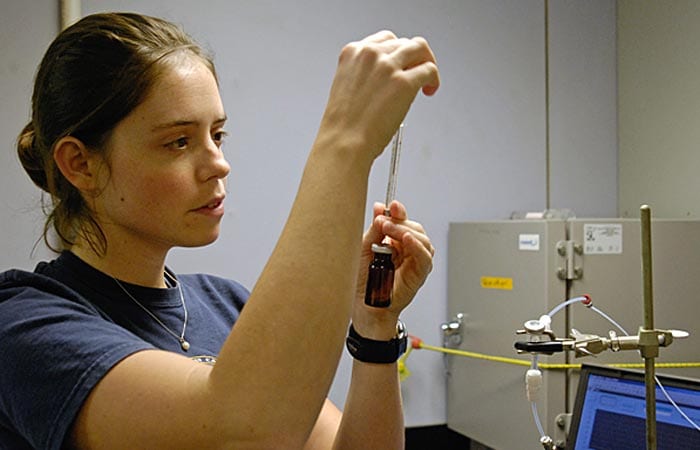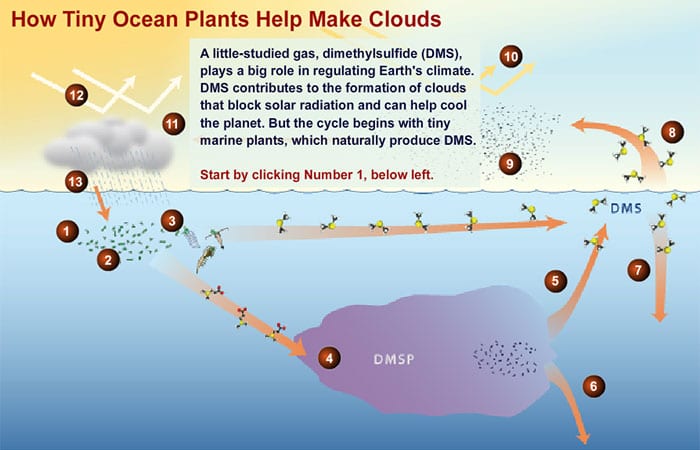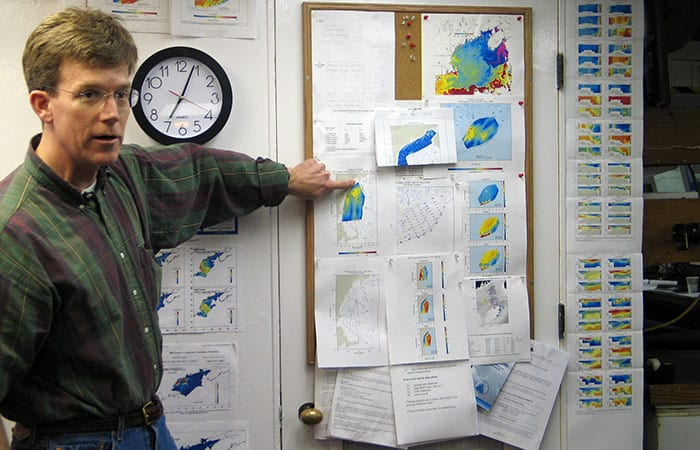Oceanus Online Archive
Sassy Scallops
MIT-WHOI Joint Program graduate student Meredith White examined how increasingly acidic ocean waters affect scallop shells in their critical early stages of development.
Read MoreA Quest For Resilient Reefs
Anne Cohen’s forte is corals. From the skeletons of massive corals, she has extracted long-term records of changing ocean and climate conditions. In lab experiments and expeditions, she is investigating…
Read MoreLyme Disease Bacteria Have Quirky Needs
Scientists have confirmed that the pathogen that causes Lyme disease—unlike any other known organism—can exist without iron, a metal that all other life needs to make proteins and enzymes. Instead…
Read MoreBacteria Exhibit Altruistic Behavior
When it comes to bacteria protecting themselves, it’s all in the family. A new study shows that marine bacteria can produce antibiotic compounds that kill unrelated bacteria but do not…
Read MoreExhibit Spotlights Sea Butterflies
Artist Cornelia Kubler Kavanagh is passionate about exploring the ocean’s great unknowns. Via her latest work, she has found a kindred spirit in Gareth Lawson, a biological oceanographer at Woods…
Read MoreOn the Trail of Mercury in the Ocean
I returned from Hawai’i in mid-December with 700 bottles of seawater. The bottles hold what I hope are solutions to an abiding mystery. In the middle of the ocean, waters…
Read MoreThe Ocean’s Tiny Chemists
Once as I was flying cross-country over the middle of the United States, the woman in the seat next to me remarked: “You know, in Nebraska when there’s a game…
Read MoreOil, Microbes, and the Risk of Dead Zones
In the scramble to get to the Gulf of Mexico to study the Deepwater Horizon oil spill, Ben Van Mooy found out firsthand why the National Science Foundation called its…
Read MoreStanley Watson
Biologist, businessman, benefactor (Courtesy of WHOI Archives) Institutional buildings are usually named after a person for one of two reasons: The namesake has achieved great things on behalf of the…
Read MoreRecycling Rare, Essential Nutrients in the Sea
In the vast ocean where an essential nutrient—iron—is scarce, a marine bacterium that launches the ocean food web survives by using a remarkable biochemical trick: It recycles iron. By day,…
Read MoreWill More Acidic Oceans Be Noisier?
In 2008, a group of marine chemists raised a red flag: As the ocean becomes more acidic over the next century, they said, noise from ships will be able to…
Read MoreHow Does Toxic Mercury Get into Fish?
Most everyone has heard by now that we should limit our consumption of certain fish because they accumulate high levels of toxic mercury. But nobody—not even scientists—knows how that toxic…
Read MoreSmall Drop in pH Means Big Change in Acidity
FEATURED IN: “The Socioeconomic Costs of Ocean Acidification” One of the most common negative responses Sarah Cooley gets when she speaks to community groups about ocean acidification is, “What do…
Read MoreThe Socioeconomic Costs of Ocean Acidification
The increasing acidification of the oceans is measured in pH units, but its impacts on people will be measured in dollar signs, says Sarah Cooley. Commercial and recreational fishing, tourism,…
Read MoreShould We Inject Carbon Dioxide into the Deep Ocean?
One proposed strategy to offset rising levels of greenhouse gases in our atmosphere is to capture carbon dioxide (CO2) emissions from fossil-fuel-burning power plants and pump them into the ocean…
Read MoreOcean Acidification: A Risky Shell Game
A new study has yielded surprising findings about how the shells of marine organisms might stand up to an increasingly acidic ocean in the future. Under very high experimental CO2…
Read MoreCara Manning
One of Cara Manning’s hobbies is cooking, which seems compatible for a chemist, right? “Some of my nonscientist friends are convinced that my culinary skills are related to my chemistry…
Read MoreAnother Greenhouse Gas to Watch: Nitrous Oxide
There’s a greenhouse gas whose concentration is on the rise because of human activities. But it’s not the one you’d expect: it’s nitrous oxide (N2O), also known as laughing gas.…
Read MoreWHOI Scientists Bring Expertise to Capitol Hill
Several WHOI scientists have traveled to the nation’s capital, supplying Congress with scientific information and advice on problems ranging from toxic algae and oil pollution in the oceans to climate…
Read MoreThe Spiral Secret to Mammal Hearing
The spiral secrets of mammals? hearing abilities Whispering galleries are curious features of circular buildings. As whispers travel along the buildings’ curved walls, they remain loud enough to be heard…
Read MoreFor Graduate Student, Research Is a Gas
When you spend 40 days on a ship in the South Atlantic, enduring equipment failures, icebergs, and the occasional surly shipmate, you should at least get to see a few…
Read MoreDMS: The Climate Gas You’ve Never Heard Of
For generations of mariners, a tangy, almost sweet odor served as a signal that land was nearby. What sailors called “the smell of the shore” had the opposite meaning to…
Read MoreWHOI Scientists Earn Laurels
WHOI geochemist Stanley Hart is the 13th recipient of the Arthur L. Day Prize and Lectureship, awarded by the U.S. National Academy of Sciences for making lasting contributions to the…
Read More